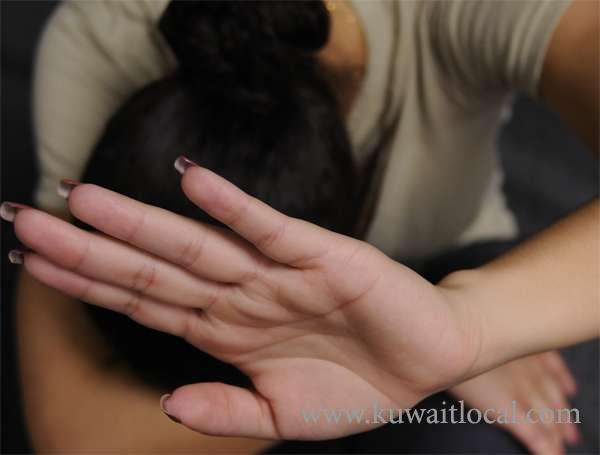Latest News
- Court Sentences Bank Employee To 5 Years For Embezzling 100,000...
- Fake ‘Sheikh’ Sentenced To 2-yr As Court Overturns Verdict
- Justice Ministry New Service On The Sahel App
- Ministry Probes 68 Cases Of Illegal Charity, Funds Collection
- Globally, Kuwait Is Among The Top Consumers Of Incense And Oud O...
- Decrease Seen In Foreign Investment
- Kuwait Customs Seized 2 Containers Laden With Tobacco At Shuwaik...
- Unpaid Salaries, Accountant Beaten Up By Workers
- The Sahel App Was Not Hacked, A Spokesman Claims
- Four Expats Arrested For Stealing Copper Cables Worth 60,000 Din...
- Indian National Died In Abdalli Car Accident
- Work Permits And Foreign Worker Transfers Are Amended By PAM
Migrant Workers Do Not Enjoy Adequate Legal Protection In Kuwait

The Human Rights Watch (HRW) has acknowledged the fact that the Kuwaiti government reforms continue to be carried out in respect of the file of the expatriates during 2018, but at the same time confirmed that the migrant workers do not enjoy adequate legal protection and are still vulnerable to ill-treatment, forced labor and deportation even if they commit minor infractions, reports Al-Rai daily.
In its annual report which was released a few days back which reviewed the human rights situation in various countries around the world, the New York-based institution said “unlike many other countries Kuwait still allows personnel from the (Human Rights Watch) to enter the country and engage constructively with the organization on many human rights issues.” The report pointed out that “twothirds of the Kuwait population is migrant workers, who are still subject to ill-treatment despite reforms.”
The report says, “Measures to protect domestic workers and other menial workers are still weak compared to those who are covered by the Kuwaiti Labor Law. The domestic labor law is also limited to the fact that it does not put in place mechanisms such as the inspection of working conditions in the home, and does not specify any penalties against employers who confiscate passports or do not provide decent housing, food, medical care, rest breaks or appropriate weekly holidays. “Domestic workers remain subject to ill-treatment, exploitation and arrest often because of the sponsorship system that links their visas to employers,” sources said.
On the issue of women’s rights, the report went on to say that “the Kuwaiti Personal Status Law, which applies to Muslims who make up the majority of Kuwaitis, discriminates against women.
For example, some women need a male guardian to complete their marriage contracts. “A woman may seek divorce from the court on a specific basis, unlike a man who can divorce his wife unilaterally.
A woman may lose custody of her children if she remarries a person from outside her ex-husband’s family. “A man can marry to up to 4 wives, without the wife’s permission or knowledge. A man can prevent his wife from working if he finds that it negatively affects the interests of the family.” “Kuwait does not have any laws against domestic violence and marital rape,” the report said. “Fornication (or adultery) and sexual relations outside marriage are punishable by law, and homosexuality among men is punishable by imprisonment for up to seven years.
The transvestites (third sex) can be arrested under a provision introduced into the Penal Code in 2007 that penalizes anyone who resembles the other sex in any way.”
On the death penalty, the report said, “Kuwait continues to apply the death penalty for non-violent crimes, such as those related to drugs and in 2017 carried out 7 executions by hanging, the first executions since 2013.
Trending News
-
 Eid Al Fitr 2024: Crescent Moon Not Sighted In Sau...
08 April 2024
Eid Al Fitr 2024: Crescent Moon Not Sighted In Sau...
08 April 2024 -
 Kuwait Implements Home Biometrics Services Ahead O...
14 April 2024
Kuwait Implements Home Biometrics Services Ahead O...
14 April 2024 -
 When Will Eid Al Fitr 2024 Take Place In Qatar, Ba...
08 April 2024
When Will Eid Al Fitr 2024 Take Place In Qatar, Ba...
08 April 2024 -
 On Sunday, The Meteorological Department Warns Of...
07 April 2024
On Sunday, The Meteorological Department Warns Of...
07 April 2024 -
 Kuwait Airways Provides Update On Flight Schedule...
14 April 2024
Kuwait Airways Provides Update On Flight Schedule...
14 April 2024 -
 Kuwait Airways Introduces Convenient Home Luggage...
15 April 2024
Kuwait Airways Introduces Convenient Home Luggage...
15 April 2024 -
 Gathering For Eid Al-Fitr Prayers: Kuwaiti Citizen...
10 April 2024
Gathering For Eid Al-Fitr Prayers: Kuwaiti Citizen...
10 April 2024 -
 Winners Of Kuwait National Assembly 2024 Elections
06 April 2024
Winners Of Kuwait National Assembly 2024 Elections
06 April 2024 -
 An Egyptian Expat Dies At Kuwait's Airport
11 April 2024
An Egyptian Expat Dies At Kuwait's Airport
11 April 2024 -
 Bay Zero Water Park Kuwait: Summer Season Opens Ei...
11 April 2024
Bay Zero Water Park Kuwait: Summer Season Opens Ei...
11 April 2024












Comments Post Comment